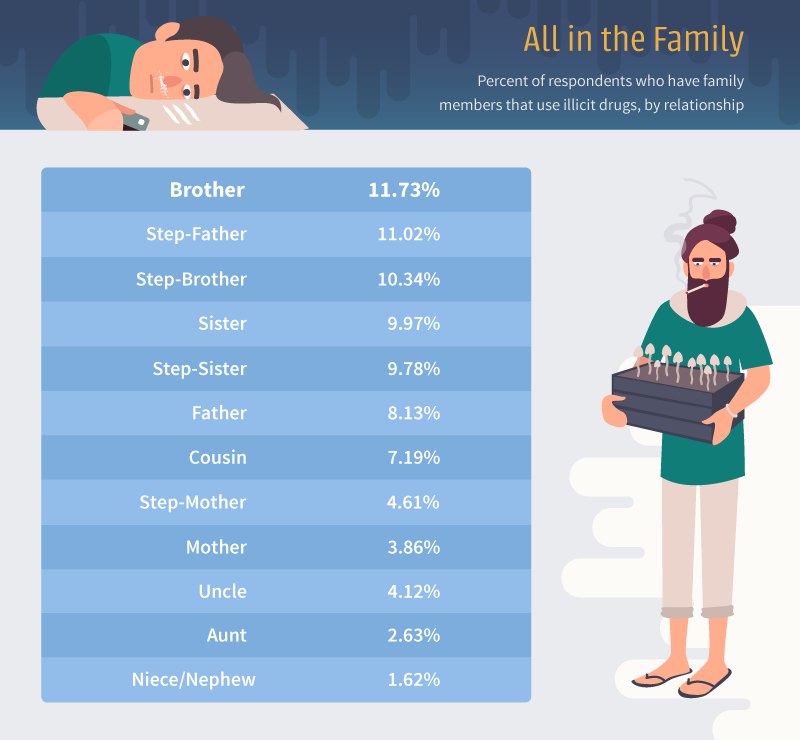Addiction is a powerful force that affects every aspect of a person’s life, but its impact on relationships is particularly profound. Whether it’s the bond between partners, family members, or friends, addiction can create a web of complications that strain these connections and sometimes lead to their unraveling. Understanding these effects and seeking appropriate help through addiction treatment programs can be crucial in healing and restoring relationships.
The Strain on Romantic Relationships
Addiction often places significant stress on romantic relationships. The person struggling with addiction may become increasingly focused on obtaining and using their substance of choice, neglecting their partner’s emotional needs.
They may feel trapped between supporting their partner and protecting themselves from the emotional and physical toll of the addiction. This dynamic can foster resentment and a breakdown in communication, exacerbating the relationship’s strain.
Family Dynamics and Addiction
Families are often the frontline of support for individuals battling addiction, but this role can come with its own set of challenges. The instability brought on by addiction can disrupt family routines and roles. Children may feel neglected or confused, while other family members might be drawn into enabling behaviors or conflict.
The emotional and financial strain of addiction can lead to familial discord, as members struggle to cope with the consequences. Family therapy can be an effective tool in these situations, allowing family members to express their feelings, rebuild trust, and develop strategies to support their loved one in recovery.
Friendship and Social Isolation
Addiction can also lead to social isolation. Friends may find it difficult to relate to someone whose behavior is dominated by substance use. This can result in the gradual erosion of friendships as social activities become increasingly centered around the addiction or are avoided altogether.
The individual with the addiction might push friends away, either out of guilt or a desire to hide their behavior. This isolation can worsen feelings of loneliness and contribute to mental health issues such as depression and anxiety. Rebuilding these relationships requires time, effort, and often the help of professional addiction treatment programs.
The Role of Mental Health in Addiction
Many individuals with addiction disorders also struggle with conditions like depression, anxiety, or trauma. These co-occurring disorders can intensify the negative effects of addiction on relationships. For example, untreated depression can exacerbate the feelings of hopelessness and disconnection that often accompany addiction, making it harder for relationships to heal.
Effective mental health treatment is essential in addressing these interconnected issues. Programs that include depression therapy, anxiety therapy, and trauma therapy can provide a comprehensive approach to recovery. By treating both addiction and mental health conditions, individuals can work towards a more stable emotional state, which can positively impact their relationships.
The Importance of Specialized Programs
Addiction treatment programs are crucial for individuals seeking to overcome substance abuse and its effects on their lives. These programs often include a range of services designed to address the multifaceted nature of addiction. One such option is a Partial Hospitalization Program (PHP), which provides intensive support while allowing individuals to return home in the evenings. This approach can be particularly beneficial for those needing a structured environment while still maintaining some level of daily life engagement. Trauma therapy is another essential component for those whose addiction is linked to past trauma.
Building and Maintaining Healthy Relationships
Recovery from addiction is not just about stopping substance use; it’s also about rebuilding and maintaining healthy relationships. This process involves open communication, honesty, and a commitment to personal growth. Therapy can help individuals develop these skills, teaching them how to navigate relationships in a healthier way and how to rebuild trust with loved ones.
Support groups can also play a significant role in this process. They offer a space where individuals can connect with others who understand their struggles, providing emotional support and practical advice on managing relationships during and after recovery.
Conclusion
Addiction impact on relationships is profound and multifaceted, affecting romantic partners, family members, and friends. However, with the right support and treatment, including addiction treatment programs, trauma therapy, depression therapy, and anxiety therapy, individuals can begin to heal and restore these vital connections. By addressing both the addiction and its accompanying mental health issues, individuals can work towards a more balanced, fulfilling life and rebuild the relationships that matter most to them.
FAQs: How Drug Addiction Can Affect Relationships
How can drug addiction affect relationships?
Drug addiction can have a devastating impact on relationships. It can lead to:
- Strained relationships: Substance abuse can put a strain on relationships with family, friends, and loved ones.
- Broken relationships: Addiction can lead to the breakdown of relationships, both personal and professional.
- Isolation: Individuals struggling with addiction may withdraw from social activities and become isolated.
How can drug addiction affect relationships with family and friends?
Drug addiction can lead to feelings of shame, guilt, and embarrassment, making it difficult to maintain relationships with family and friends. Loved ones may become frustrated, angry, or even resentful.
How can drug addiction affect romantic relationships?
Drug addiction can have a significant impact on romantic relationships. Partners may experience feelings of betrayal, disappointment, and resentment. Addiction can also lead to financial problems, domestic violence, and child neglect.
How can drug addiction affect relationships with children?
Drug addiction can have a negative impact on children. Children of parents with substance abuse problems may experience emotional distress, behavioral problems, and academic difficulties.





























